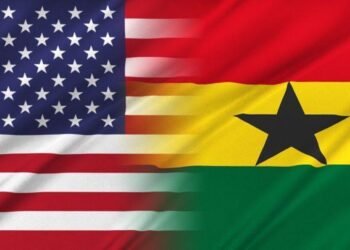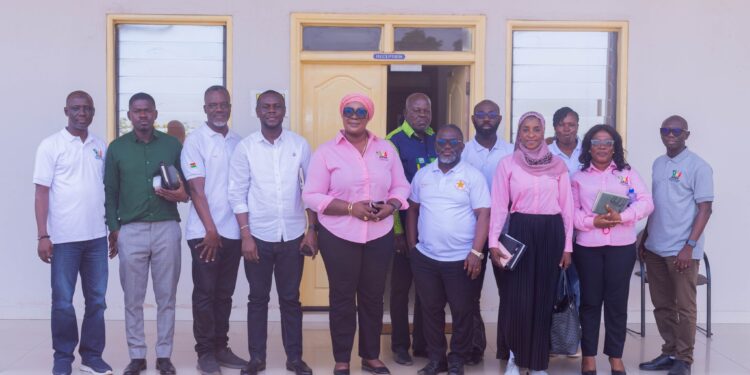Data from the Ghana Statistical Service (GSS) has disclosed a marginal fall of the Consumer Price Index (CPI) Inflation from a record of 54.1% in December 2022 to 53.6% in January 2023.
This is the first time in 19 months (since May, 2021) Ghana’s inflation has dropped, giving the country a hope.
The current rate revealed by GSS gives an indication of the extent to which consumer prices decreased between January 2022 and January 2023 (year-on-year).
According to the data, the CPI for January 2023 was 165.6 relative to 107.8 for January 2022 using the linked series, hence, deducing a year-on-year inflation rate for January 2023 as 53.6%.
This means that in the month of January2023, the general price level was 53.6%higher than January 2022.
Touching on the monthly inflation, GSS in its analysis noted that the month-on-month inflation between December 2022 and January 2023 was 1.7%.
The data released by the Ghana Statistical Service (GSS) showed that January’s marginal fall in inflation was mainly driven by the rising food prices which pushed the Consumer Price Index (CPI) up, along with transport inflation falling for the first time in several months due to the reduction in fuel prices during the period. Prices of non-food items also declined during the period.
According to the figures, five divisions registered inflation higher than the national average.
Independently rating the disaggregation of the January year-on-year Inflation by the 5 Divisions, Furnishings, household equipment recorded a year-on year inflation of 71.7%, with Housing, water, electricity, gas and other recording a percentage of (71.1).
Adding up, Transport recorded a year-on-year inflation of (68.8%) with Personal care, social protection and miscellaneous services recording a percentage of (63.1), followed by Food and non-alcoholic beverages recording (61.0%).

GSS in its data interpretation noted that food inflation shot up from a record of 59.7% in December 2022 to 61.0% in January 2023. This indicated that the month-on-month food inflation was 2.8%.
The year-on-year non-food Inflation for January 2023 was 47.9%, while the year-on-year non-food inflation for December 2022 was 49.9%. However, the month-on-month Non-Food inflation was 0.8%.
Inflation for locally produced items was 50.0%, while that of imported items was 62.5%
High Inflation To Keep Lending Rates Elevated
The high inflation, as repoted by Ghana Statistical Service will keep lending rates still high at an average of about 35%. This means the cost of borrowing will still remain elevated.
Also, the data designated that banks will adopt a strict credit risk policy in lending to businesses and households.
Regional Rates of Inflation for January 2023
With regards to the overall inflation (food and Non-food Inflation) recorded by the various regions in Ghana, Eastern region recorded the highest year-on-year inflation of 66.2%.
Greater Accra followed suit with an inflation of (65%), Bono (59.6%), Western (59.0%), Central (57.5%), Savannah (55.1%), Bono East (51.8), Oti (51%), North East (49.9%), Ahafo (48.3%), Western (46.1%), Ashanti (44.7%), Nothern (44.0%), Upper East (43.7%) and Upper West (40.5).
Amongst all the regions, Volta however recorded the lowest inflation of 34.7%.

GSS CPI Interpretations
The Consumer Price Inflation measures the changes in the price of a fixed basket of goods and services purchased by households.
According to GSS, the CPI measure is in relation to the assumption that the basket is purchased each month, hence, as price changes each month, the total price of the basket will also change.
The rate of inflation, according to GSS, is the relative change in CPI between periods.
Inflation is reported year-on-year (annual inflation) and month-on month (monthly inflation), and granulated to determine regional and commodity type and source of inflation.





















